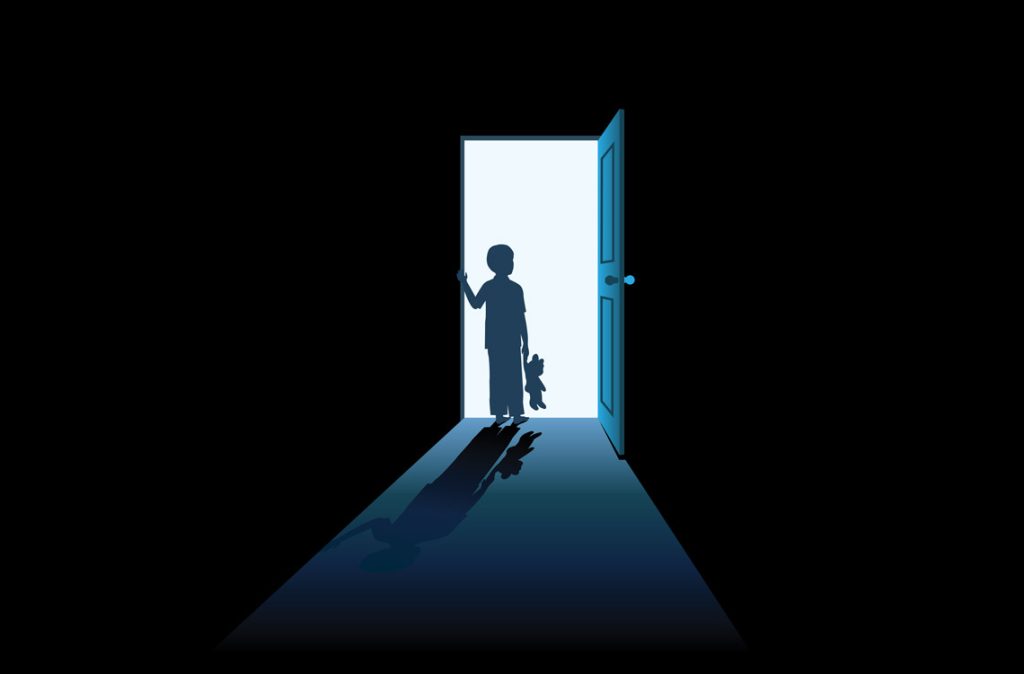Almost every parent has been there. You tuck your child into bed, turn off the lights, and within minutes they’re already calling out to you because they’ve seen a shadow move or heard something creak.
To us, it’s just the wind or the lamp. To them, it’s a monster.
It’s easy to roll your eyes and say, “Don’t be silly.” But those fears aren’t just drama.
They’re a natural part of growing up, and how parents respond makes a big difference.
When Imagination Runs Wild
Young children have powerful imaginations. Between toddlerhood and early school years, their brains are exploding with new ideas and stories.
The tricky part is they can’t always separate what’s real from what’s made up. That’s why a coat on a chair looks like a ghost, or a shadow becomes a creature waiting to pounce.
These fears might sound funny to adults, but to a child they feel just as real as the ground beneath their feet.
This overlap between reality and imagination is perfectly normal.
It’s how children learn to play, create stories, and make sense of the world. But the downside is that it also makes them more vulnerable to fear.
Parents sometimes worry that these fears are a sign of deeper problems, but in most cases, they’re simply a stage that fades with time.
Why Nighttime Feels Scarier
Night is the perfect recipe for fear. The house is quiet, the lights are dim, and their senses don’t have much to grab onto.
When the brain doesn’t have enough information, it fills in the blanks — and those blanks often turn into something scary.
A bump, a shadow, or even silence itself can spark panic.
Tiredness adds another layer. A worn-out child has less energy to control emotions, so worries feel bigger than they do in daylight.
However, nighttime fear is a totally normal part of cognitive development. It is the natural human instinct to fear the unknown.
At its foundation, this fear helps us survive a lot of real dangers in the world.
But for some children, these fears can often be compounded due to life stresses, family problems and other challenges.
Why Brushing It Off Doesn’t Work
Think about how you feel when you’re scared. The last thing you want is someone laughing at you.
It’s the same for kids. If we tell them to stop being silly or roll our eyes, they learn that their feelings don’t matter.
This can make them more likely to hide their fears or act out in other ways because they don’t know how else to show their emotions.
On the other hand, when parents stay calm and listen, children learn that fear is something you can talk about and manage.
Studies on parenting and emotions show that children who are supported and guided through strong feelings grow up better able to handle stress.
In other words, your response teaches your child whether fear is something to be ashamed of or something that can be understood and handled.
When Fear Is More Than a Phase
Most children eventually outgrow their fear of the dark. But sometimes it sticks around longer than expected.
If your child is losing sleep night after night, refuses to be alone even during the day, or avoids normal activities because of fear, that’s worth paying attention to.
It doesn’t mean something is “wrong”, but it does mean they may need more support.
If fears are strong and persistent, it can help to bring it up with a doctor, school counsellor or even a child therapist.
Sometimes underlying anxiety or stress in a child’s life shows up first through sleep and night-time worries. Getting advice early can prevent bigger struggles later.
What Parents Can Do
The good news is that you don’t need grand solutions or expensive tools to address your child’s fear of the dark. A few simple changes can go a long way:
- Acknowledge the fear. Instead of saying, “There’s nothing there,” try, “I know that shadow looked scary.”
- Offer steady comfort. A calm voice, a hug, or sitting nearby can help a child relax.
- Create a routine. A bath, a story, and a soft night-light can make bedtime feel predictable and safe.
- Give them a sense of control. Let them do a “monster check” under the bed, or keep a torch by the pillow. Even small rituals can help kids feel braver.
If fears remain intense, there are gentle approaches, like gradual exposure (letting a child spend short periods in the dark with support) or relaxation exercises before bed.
For many families, keeping bedtime light and consistent is enough to see improvements.
Being Scared is Normal
Children’s fear of shadows, monsters, and the dark is not just play-acting. It’s a sign of a developing mind trying to make sense of what’s real and what’s not.
While most children will eventually grow out of it, how parents react in the moment has a lasting impact.
By treating the fear seriously and offering calm reassurance, you’re teaching them that being scared is normal (and that they can handle it).
So, the next time your child calls out about a monster under the bed, resist the urge to brush it off.
Instead, see it as a chance to teach comfort, courage, and resilience.
After all, monsters may not exist, but the feelings are very real.
Disclaimer: The information provided in this article is for informational purposes only and should not be considered as medical advice from Motherhood. For any health-related concerns, it is advisable to consult with a qualified healthcare professional or medical practitioner.
For more insightful stories and parenting advice, stay tuned to Motherhood.Sg!
